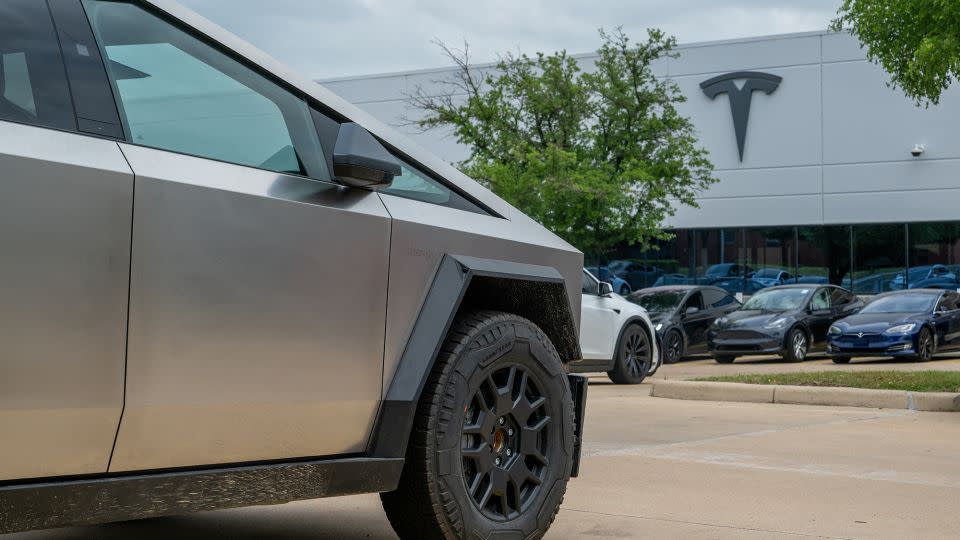The electric car revolution is on track, says IEA
Global electric vehicle sales are set to rise by more than a fifth to reach 17 million this year, powered by drivers in China, according to the International Energy Agency.
In a report Tuesday, the IEA projected that “surging demand” for EVs over the next decade was set “to remake the global auto industry and significantly reduce oil consumption for road transport.”
It expects half of all cars sold globally to be electric by 2035, up from more than one in five this year, provided charging infrastructure keeps pace.
The agency’s bullish long-term outlook for EVs — based on current government policies — comes just days after the world’s biggest EV maker Tesla slashed its prices in major markets to counter declining sales and growing competition from Chinese upstarts and established carmakers.
“The continued momentum behind electric cars is clear in our data, although it is stronger in some markets than others,” IEA executive director Fatih Birol said in a statement. “Rather than tapering off, the global EV revolution appears to be gearing up for a new phase of growth.”
Birol’s upbeat assessment contrasts with the financial pressure currently facing automakers, with profit margins squeezed by price wars as competition heats up and demand slows. Last year, global EV sales grew 35% to almost 14 million.
In the past two days, Tesla and Chinese EV maker Li Auto have cut prices on major models in China, the world’s biggest EV market, with Tesla also cutting prices in Germany and the United States.
Earlier this month, Tesla posted its first annual drop in sales in nearly four years. The company’s stock has plunged more than 40% so far this year. China’s BYD has also stumbled after it briefly surpassed Tesla as global market leader, with its sales falling to about 300,000 in the first quarter from more than 525,000 in the final three months of 2023.

Automakers may be hurting from the price cuts but they will be crucial to increasing the take-up of EVs around the world, according to the IEA, which emphasized that the “pace of the transition to EVs… will hinge on affordability.”
In China, more than 60% of EVs sold last year were less expensive than conventional cars, but in Europe and the United States the purchase price for new cars with internal combustion engines remains lower on average.
“Intensifying market competition and improving battery technologies are expected to reduce (EV) prices in the coming years,” the IEA said.
“Growing electric car exports from Chinese automakers, which accounted for more than half of all electric car sales in 2023, could add to downward pressure on purchase prices,” it added.
Concerns about soaring imports of Chinese EVs prompted the European Union to open an investigation late last year into China’s state support for EV makers. The auto industry is a major employer in Europe and crucial to the region’s biggest economy, Germany, which is home to Volkswagen, Audi and BMW.
EV sales in China will account for almost 60% of the global total this year and about 45% of all car sales in the country. By 2030, almost one in three cars on the roads in China is set to be electric, according to the IEA.
That compares with its forecast for almost one in five in both the United States and the European Union.
“This shift will have major ramifications for both the auto industry and the energy sector,” Birol said.
Under current government policies, the number of public EV charging points worldwide is expected to reach 15 million by the end of the decade, a near-fourfold increase from last year.
“Policy support and careful planning are essential to make sure greater demand for electricity from charging does not overstretch electricity grids,” the IEA warned.
For more CNN news and newsletters create an account at CNN.com
